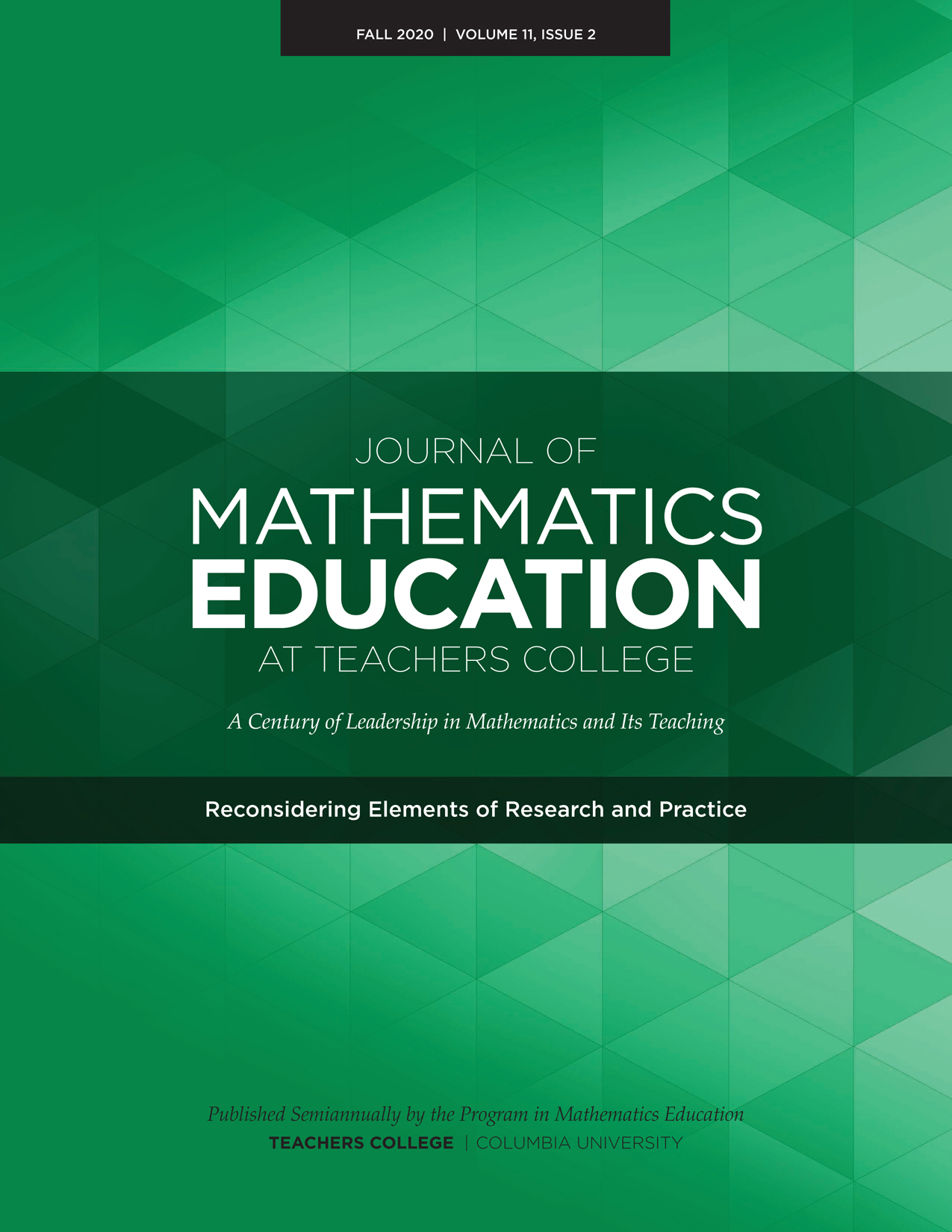The Mathematical Mindsets and Mathematical Identities Revealed in Social Media Discourse
Main Article Content
Abstract
Mathematics problems are shared rapidly across all social media platforms, and the relative anonymity granted to users can lead to unfiltered discourse. This study examined 1,046 comments from a mathematics problem posted twice to YouTube in February 2016 to determine the underlying narratives that indicate the commenters’ mathematical mindsets and their mathematical identities. These two factors contribute to mathematics success in general. Qualitative themes emerged regarding attributions, motivational goals, response to failure, defensive processing, normative comparisons, and positional acts. A fixed mathematical mindset was the dominant mindset and corresponded to positional acts of superiority, inferiority, or authority. This finding suggests that intellectual capacity or ranking was a core component of the mathematical identities for these users. The growth mathematical mindset was linked to spectator and instructor or solidarity positions, suggesting that these users had more robust mathematical identities that were unthreatened by performance indicators. Further examination of social media discourse and
its relation to mathematical mindsets and mathematical identities can lead to a better understanding of the interactions outside the classroom that either encourage or inhibit mathematics success.
Article Details

This work is licensed under a Creative Commons Attribution 4.0 International License.

